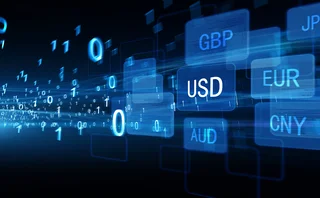Outsourcing and Cloud Are NOT the Same Thing

There's a difference between outsourcing and cloud computing.
Some of you will disagree with me, but I stand by that statement.
At Buy-Side Technology's recent European Summit, Nimesh Bharadia, CEO of consulting firm The Kaimian Group, told the audience that cloud is the wave of the outsourced future.
"With technology being hosted in the cloud effectively, services and the whole support structure around that can be downsized even further to create a true outsourced model," he said. "Is it something that is going to continue? Yes, I definitely think it is. It's difficult to say where it will stop."
This is certainly not a shot at Bharadia because it is a sentiment that was shared by numerous other speakers, as well as Alberto Corvo, managing principal for financial services for outsourcer eClerx, who doesn’t agree with me. He says there has been a paradigm shift in outsourcing, which has led to the crossover with cloud.
Can cloud help in the process of outsourcing? Sure. But it's a tool, not the strategy itself.
I’m not convinced. This is not to say that cloud and outsourcing are not related. But they are not the same thing. Cloud is simply a tool, not the strategy itself.
I think in the capital markets, and in business in general, the term “outsource” has been well-defined, while the definition of “cloud” is still elusive.
I view outsourcing as moving physical objects and jobs to a different country or region because it is cheaper to do so. If I turn to XYZ Company to store my data in a cloud because it's cheaper than storing the data in a physical database, that's not outsourcing. If I move my datacenter to India because it's cheaper than being in Mahwah, NJ, that's outsourcing.
Not Just Semantics
To be sure, outsourcing is a touchy subject. Politically, it conjures images of “sending jobs overseas,” of turning one’s back on the local workforce to save a few bucks. And most people have at some point endured communications breakdowns with call center reps with questionable grasp of the language of the customers they are supposed to be supporting.
Let’s say we go with Merriam-Webster’s definition of outsourcing—to procure (as some goods or services needed by a business or organization) under contract with an outside supplier. This is what most vendors do, right? If I run a company and I want to buy your widget rather than build my own, aren’t I outsourcing that task to you? Even if I go to a vendor down the hall, as long as it is not part of my company and I have to sign a contract for its goods or services, then I've entered into an outsourcing agreement.
Colloquially, unlike outsourcing, “cloud” has fairly rosy connotations, so marketers love to tack it on to as much as possible. This is especially true for the “as-a-service” crowd.
Yet the differences are important. We talk about striving toward a common ontology for derivatives and data points, but for the basics we tend to be fine with using concepts like this interchangeably.
Here's why hard-and-fast definitions are important: When lawmakers write up the rules that govern the capital markets, it's important to not have any vagaries. Everyone has to be on the same page or else the smartest kids in the room will skirt the rules and the ignorant will unknowingly be punished. Rules are meant for everyone, and everyone should understand them, even if that is pie-in-the-sky talk.
Definitions can be tricky. As an example, the Commodity Futures Trading Commission (CFTC) has defined what a swap dealer is, but not what is, and is not, a swap. This is a massive regulatory initiative that is years in the making and is still, relatively speaking, a long way from being law.
What happens when there is finally a massive breech that involves the cloud and a major trading firm? What happens when regulators start handing down rules against what can and can't go on the cloud? What happens when politicians get involved and seek to draft regulations? What if a country declares war on, or restricts trade with, a country that handles a lot of its outsourcing?
I’m not picking on the late Alaskan senator Ted Stevens, but he famously called the internet “a series of tubes,” while working to pass legislation that would regulate the internet. These are the same people who wrote up the Dodd–Frank Act, which is anything but precise in its terminologies and which has caused many technologists to lose sleep.
In short, definitions matter.
Consider this your Friday lecture. Do you disagree or think I’m being too literal? Call me and let me know. My number is +1 646 490 3973 and your call will not be redirected to an outsourced facility. Or, shoot me an email to anthony.malakian@incisivemedia. But please note that our email service is hosted in the cloud.
Only users who have a paid subscription or are part of a corporate subscription are able to print or copy content.
To access these options, along with all other subscription benefits, please contact info@waterstechnology.com or view our subscription options here: http://subscriptions.waterstechnology.com/subscribe
You are currently unable to print this content. Please contact info@waterstechnology.com to find out more.
You are currently unable to copy this content. Please contact info@waterstechnology.com to find out more.
Copyright Infopro Digital Limited. All rights reserved.
As outlined in our terms and conditions, https://www.infopro-digital.com/terms-and-conditions/subscriptions/ (point 2.4), printing is limited to a single copy.
If you would like to purchase additional rights please email info@waterstechnology.com
Copyright Infopro Digital Limited. All rights reserved.
You may share this content using our article tools. As outlined in our terms and conditions, https://www.infopro-digital.com/terms-and-conditions/subscriptions/ (clause 2.4), an Authorised User may only make one copy of the materials for their own personal use. You must also comply with the restrictions in clause 2.5.
If you would like to purchase additional rights please email info@waterstechnology.com
More on Trading Tech
EMS vendors address FX options workflow bottlenecks
Volatility is driving more buy-side interest in automating exercises and allocations.
BNP Paribas explores GenAI for securities services business
The bank recently released a new web app for its client portal to modernize its tech stack.
Treasury selloff challenges back-office systems, datafeeds
FIS and Trading Technologies suffered downtime during peak activity.
Coming to America: Deutsche Börse targets US market using SimCorp One
Fresh from integrating SimCorp and rearranging its business lines, the German exchange has set American expansion as its goal for SimCorp’s buy-side offering.
Tariffs, data spikes, and having a ‘reasonable level of paranoia’
History doesn’t repeat itself, but it rhymes. Covid brought a “new normal” and a multitude of lessons that markets—and people—are still learning. New tariffs and global economic uncertainty mean it’s time to apply them, ready or not.
ICE eyes year-end launch for Treasury clearing service
Third entrant expects Q2 comment period for new access models that address ‘done-away’ accounting hurdle
MarketAxess, S&P partnership aims for greater transparency in fixed income
CP+, MarketAxess’s AI-powered pricing engine, will receive an influx of new datasets, while S&P Global Market Intelligence integrates the tool into its suite of bond-pricing solutions.
Trading Technologies looks to ‘Multi-X’ amid vendor consolidation
The vendor’s new CEO details TT’s approach to multi-asset trading, the next generation of traders, and modern architecture.








